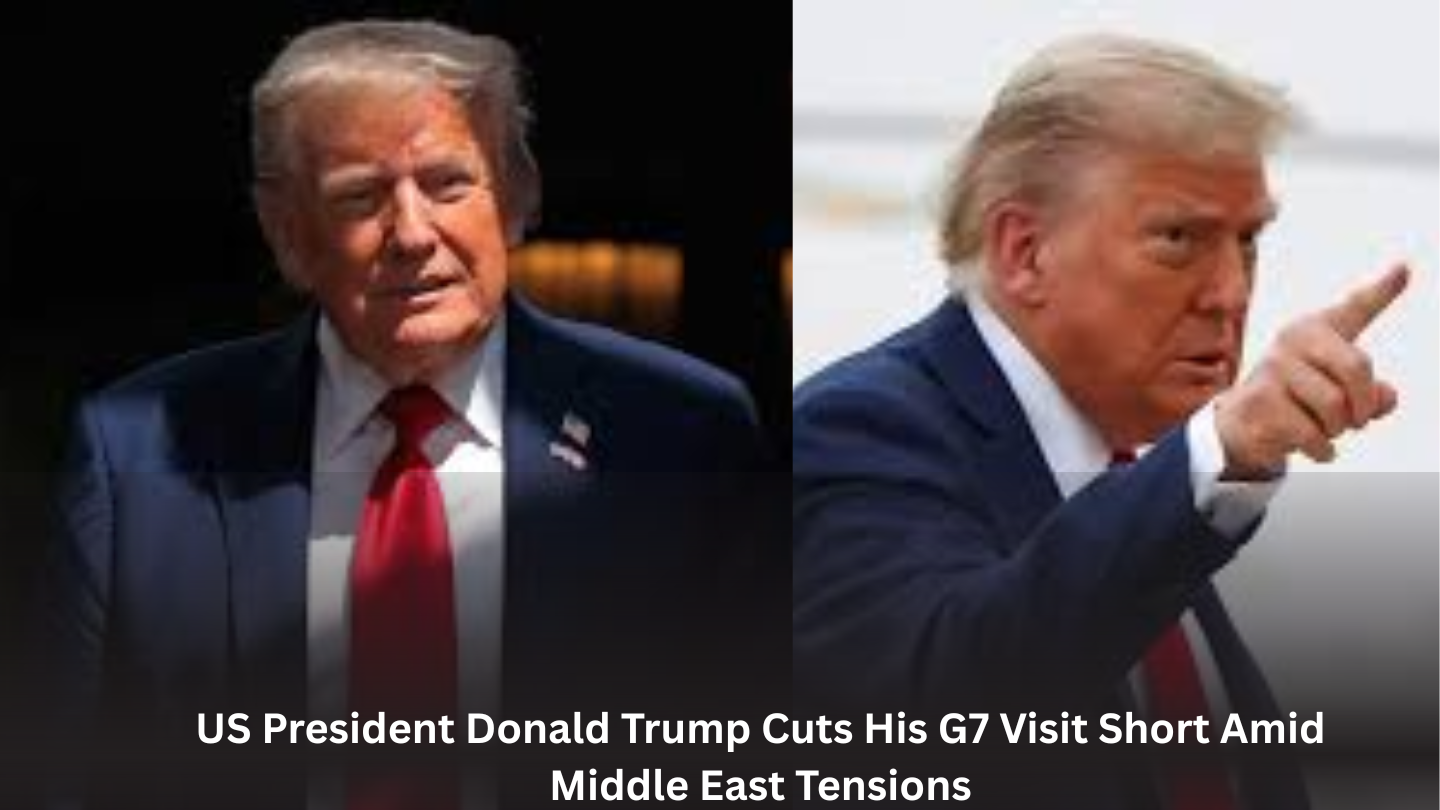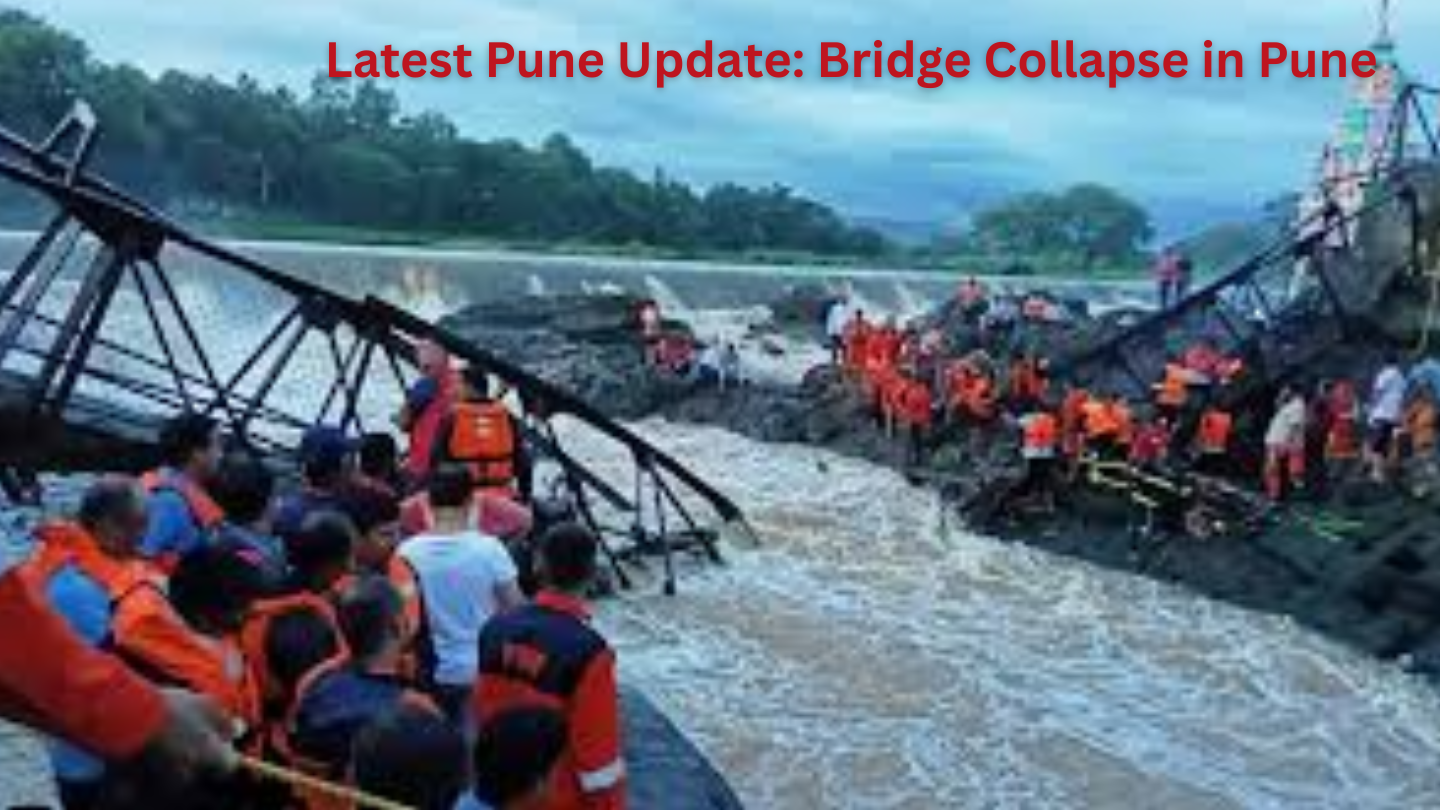Trump leaves the G7 summit early due to the Middle East tensions
US President Donald Trump left the National Security Council (NSC) G7 summit in Canada early and abruptly. Citing pressing national security issues brought on by escalating tensions between Iran and Israel.
Due to the Middle East conflicts potential to escalate into a larger regional crisis his early departure has garnered international attention. U.S. President Donald Trump left the Quebec summit late Monday evening skipping the closing session and a joint news conference with other world leaders. According to White House officials he returned to Washington to chair high-level National Security Council (NSC) meetings focused on the recent military flare-ups in the Gulf region. In order to address the growing crisis in the Middle East directly the President has departed from the G7.
He will work closely with defense officials and allies to protect regional stability and American interests the White House said in a brief statement.
Growing Tensions in the Middle East Demand Quick Action:
Leaders from the worlds largest economies gathered at the G7 summit which was expected to focus on global economic policies international trade and climate change. The sharp rise in hostilities between Iran and Israel however dominated private conversations on the sidelines.
Reports state that just hours before Us President Donald Trump stepped down Israeli airstrikes hit targets in Syria and Lebanon that were connected to Iran. Israel claims the strikes were retaliatory for missile and drone attacks that were carried out by militias with Iranian assistance. Iran heightened the situation and raised international alarm by threatening a forceful and coordinated response.
Us President Donald Trump said We are seeing a dangerous and fast-moving situation in the Middle East in a brief statement to reporters prior to boarding Air Force One. I strongly recommend that civilians in Tehran leave the area if at all possible and I implore all Americans in the area to stay vigilant. The next forty-eight hours are crucial.
Global Leaders Pay Close Attention to NSC Meetings:
Once back in Washington, Us President donald Trump called a meeting of the National Security Council right away with National Security Advisor Jake Sullivan Secretary of State Nikki Haley and Secretary of Defense John Spencer present. The group is evaluating the most recent intelligence as well as possible diplomatic or military solutions. The President is being briefed hourly according to a senior administration official and several U. S. The areas military installations are now under increased surveillance. U. S. In the Persian Gulf naval fleets have also been moved for strategic advantage according to Pentagon officials. German Chancellor Annalena Baerbock and French President Emmanuel Macron both voiced their concerns about the developing crisis during the G7 summit. We need to prevent another regional conflict, said Macron who has tried to establish diplomatic relations with Tehran in the past. Communication must continue.
Concerns about humanitarian issues and public safety are growing:
International attention has been drawn to Trump warning to civilians in Tehran. Although he refrained from declaring a direct military intervention his remarks gave many analysts the impression that the U. S. is getting ready for possible confrontation situations. All parties have been urged to use restraint by the UN. In a statement UN Secretary-General Antonio Guterres emphasized We are very concerned about the safety of civilians throughout the Middle East. Prioritizing de-escalation and adhering to international humanitarian law are imperative for all parties. The news caused a significant reaction in the oil markets. In response to concerns about supply chain disruptions worldwide, Brent crude prices surged by almost 6% overnight. Tuesday saw the Dow Jones Industrial Average open lower as investors struggled with the geopolitical unpredictability.
Domestic Politics:
Back in the United States, Trumps early departure has also sparked political controversy. Republicans applauded his prompt return and decisive action but some Democrats chastised the President for calling off the G7 summit. Trump ought to have stayed to collaborate with allies at the G7 on a coordinated crisis response said Senator Elizabeth Warren in a tweet. Instead of isolation we require leadership. Senator Marco Rubio a Republican defended the presidents choice nevertheless. First and foremost is national security. The G7 can hold off. The goal is to stabilize the Middle East and safeguard American interests he declared.
G7 Leaders Proceed Without the USA President:
Despite Trumps early departure, the other G7 leaders continued their discussions including ones on digital innovation, climate change and food security. The group reiterated its commitment to multilateral cooperation, collective security and economic resilience in a joint statement issued Tuesday afternoon. The host of the summit, Canadian Prime Minister Justin Trudeau acknowledged President Trump’s absence in his closing remarks and emphasized the unity of the remaining leaders. According to Trudeau. We understand the urgency us President donald Trump is facing at home. G7 members continue to call for humanitarian concerns and peace diplomacy in the Middle East.
What comes next?
The world is now more concerned with possible military developments than with diplomacy because Trump is now directly focused on the Iran-Israel conflict. More clarity is anticipated in the days ahead as intelligence services keep an eye on movements in Tehran Tel Aviv and the surrounding areas. The U. S. For all Americans who are in Iran Israel or nearby countries now or intend to visit the State Department has issued a travel advisory. On the embassy websites emergency phone numbers and evacuation schedules are being updated.
The situation is still very fluid experts warn:
Washington-based Middle East policy analyst Rachel Moyers stated that this could either be a watershed moment for diplomacy or the start of a much larger conflict.
For now the world keeps a close eye on the Trump administration as it negotiates one of the most difficult foreign policy challenges in recent memory.
For more updates on the Middle East conflict and U.S. response, visit: www.state.gov/middleeastupdates







